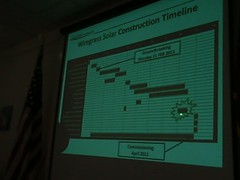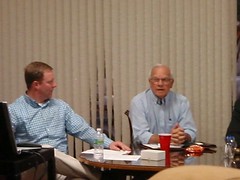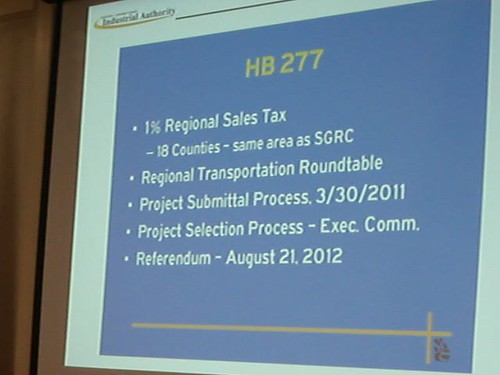Presumably that would be the “Project Critical Path time-line is attached” that wasn’t actually attached to documents returned for an open records request of 17 February 2011. Hm, since VLCIA did supply such a document to the VDT, presumably it is now a VLCIA document subject to open records request, even though it was not what VLCIA told VDT it was.The reporter who conducted the interview with Industrial Authority Project Manager Allen Ricketts has been subsequently repeatedly contacted by Ricketts for what he deems “false reporting.” According to Ricketts, the timeline was never official and was only something the Industrial Authority threw together to appease the Times when given an official Open Records Request. Ricketts is apparently unaware that legally he cannot produce a document that does not exist to comply with said request. If he knowingly did so, as he now claims, that is a clear violation of the Open Records Act.
Back to the VDT editorial: Continue reading









.jpg) And yet the folks at the Industrial Authority appear to be rather
nonchalant about the fact that this company has yet again broken its
agreement. They have the power to renogiate the terms of the agreement and
they also have the power to cancel it, but neither is happening. Instead,
they are giving the company all the leeway they need to continue dragging
this project along that the community doesn’t want.
And yet the folks at the Industrial Authority appear to be rather
nonchalant about the fact that this company has yet again broken its
agreement. They have the power to renogiate the terms of the agreement and
they also have the power to cancel it, but neither is happening. Instead,
they are giving the company all the leeway they need to continue dragging
this project along that the community doesn’t want.
 Some local councils don’t even have open records request forms,
and many don’t have them posted online.
But that doesn’t have to stop you!
Some local councils don’t even have open records request forms,
and many don’t have them posted online.
But that doesn’t have to stop you!
